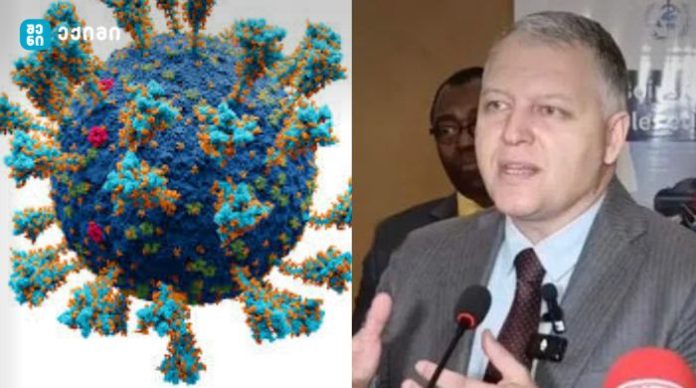Study Finds Persistent Infection Could Explain Long COVID in Some
People NEWS RELEASE, 9-OCT-2024 Researchers from Brigham and Women’s Hospital have discovered that individuals with wide-ranging long COVID symptoms are nearly twice as likely to have SARS-CoV-2 proteins in their blood compared to those without long COVID symptoms.
This finding suggests that a persistent infection might explain why some people continue to experience symptoms long after recovering from COVID-19.
The study, published in Clinical Microbiology and Infection, revealed that 43% of participants with cardiopulmonary, musculoskeletal, or neurologic symptoms of long COVID had viral proteins present in their blood between 1 to 14 months after their initial infection. “If we can identify a subset of people who have persistent viral symptoms because of a reservoir of virus in the body, we may be able to treat them with antivirals to alleviate their symptoms,” said Zoe Swank, PhD, lead author of the study (1).
Persistent Infection and Long COVID The researchers analyzed 1,569 blood samples from 706 participants, including 392 individuals from the National Institutes of Health-supported Researching COVID to Enhance Recovery (RECOVER) Initiative.
The team used Simoa, an ultra-sensitive test for detecting single molecules, to identify whole and partial proteins from the SARS-CoV-2 virus in the blood samples.
Participants who reported long COVID symptoms, particularly those affecting the heart, lungs, muscles, and brain, were twice as likely to have viral proteins circulating in their blood compared to those without symptoms. Common symptoms included fatigue, brain fog, muscle and joint pain, headaches, sleep disturbances, and gastrointestinal issues.
Professor Giorgi Pkhakadze, Chair of the Public Health Institute of Georgia (PHIG), emphasized the significance of this finding:
“This study sheds new light on the mechanisms behind long COVID and offers a potential explanation for why some individuals experience prolonged symptoms. For Georgia and other countries in Europe, it is essential that healthcare systems be prepared to address these long-term complications, particularly for those who may still harbor the virus.”
Study Results and Implications Specifically, the study found that 43% of individuals with long COVID symptoms affecting three major systems—cardiopulmonary, musculoskeletal, and neurologic—tested positive for viral proteins in their blood. In contrast, only 21% of those without long COVID symptoms had detectable SARS-CoV-2 biomarkers in the same period. This suggests that persistent infection could be one explanation for the lingering symptoms in some long COVID patients.
The study also raised questions about why over half of those with long COVID symptoms tested negative for viral proteins, indicating that there may be multiple causes for the condition (1).
Professor Pkhakadze remarked:
“The fact that a significant portion of individuals with long COVID symptoms still test positive for viral proteins highlights the need for comprehensive follow-up and treatment. In Georgia, this could mean the development of national testing strategies to identify and provide care for those still experiencing persistent infection.”
Implications for Georgia and Europe Given the high rate of COVID-19 infections in Georgia and across Europe, Professor Pkhakadze stressed the importance of this study for the region.
“Healthcare systems must now factor in long COVID and its potentially long-lasting impact on individuals’ health. This study offers valuable insights that can shape national strategies for testing and treatment, especially for those with persistent viral infections.”
He further added:
“In Georgia, where many individuals contracted the virus during the early stages of the pandemic, we must be prepared for an influx of patients experiencing long COVID symptoms.
By identifying those with persistent infections, we can offer antiviral treatments that may improve their quality of life.”
Ongoing Research and Treatment The Brigham team is conducting follow-up studies to further investigate the link between persistent viral infections and long COVID. These studies will analyze larger and more diverse populations to determine whether certain individuals, such as those with weakened immune systems, are more likely to retain the virus.
The SARS-CoV-2 blood test developed by the researchers is also being used in a national trial (RECOVER-VITAL) to test the effectiveness of antiviral drugs in treating long COVID by eliminating persistent viral proteins from the blood (1).
Professor Pkhakadze noted that this research is crucial for the broader European region as well:
“Long COVID represents a complex challenge for healthcare systems, and understanding the role of persistent infection will be key to developing effective treatments. Countries across Europe should be paying close attention to these findings as they look to manage long-term care for COVID-19 survivors.”
Conclusion
This study provides valuable insights into the potential causes of long COVID, particularly the role of persistent SARS-CoV-2 infection.
For countries like Georgia and across Europe, the findings underscore the importance of long-term care strategies, testing, and treatment options for individuals suffering from long COVID. Antiviral treatments could prove crucial in alleviating symptoms for those with persistent infections, offering hope for millions of people still struggling with the effects of COVID-19.
References:
1. Swank Z, Walt D, et al. Measurement of circulating viral antigens post-SARS-CoV-2 infection in a multicohort study. Clinical Microbiology and Infection. 2024. Available from:
https://doi.org/10.1016/j.cmi.2024.09.001





